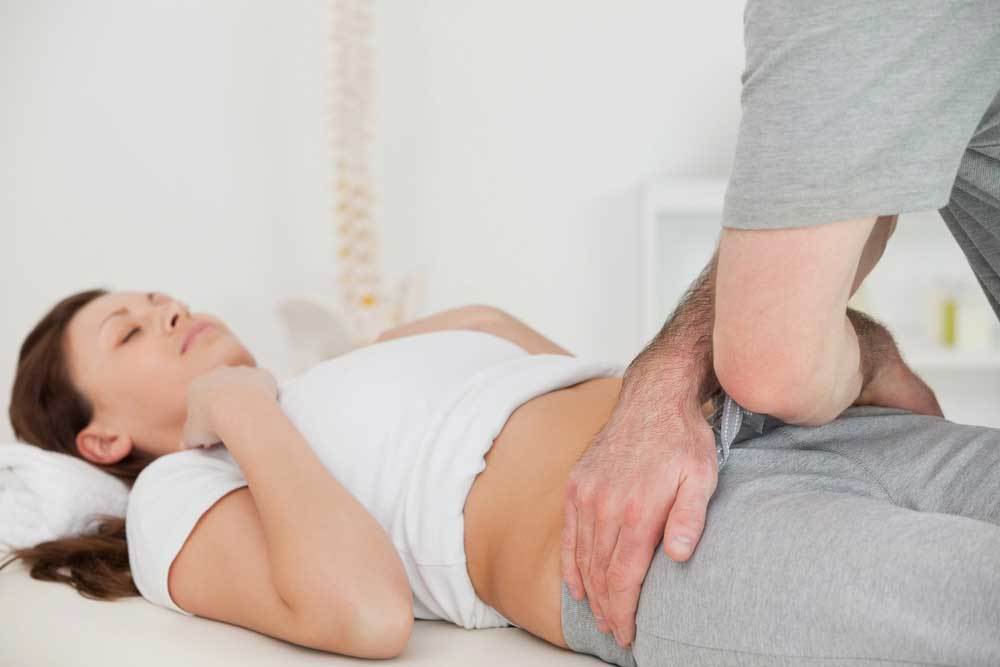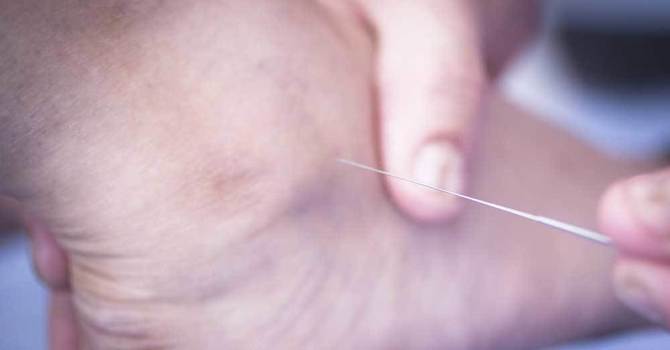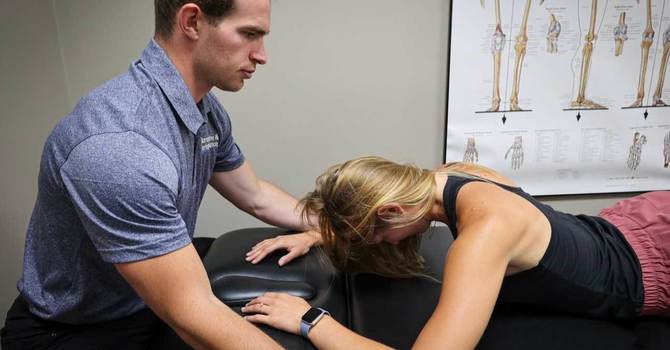
Hip pain is a common issue among women, affecting daily activities and overall quality of life. While some discomfort may be temporary, persistent hip pain can signal underlying conditions that require attention. Understanding the causes of hip pain and knowing the most effective treatments can help women maintain an active, pain-free lifestyle.
At Skare Spine and Performance in Rochester, MN, we use a comprehensive approach to restore function and improve your hip pain to get you back to the activities you love.
Common Causes of Hip Pain in Women
Women are particularly susceptible to hip pain due to anatomical differences, hormonal fluctuations, and lifestyle factors. Here are some of the most common causes:
Low Back Pain Referral
The lower back and hip are closely connected, and research from the EXPOSS study shows that 70% of hip pain actually originates from the spine. Conversely, tightness and limited hip mobility can contribute to lower back pain. That’s why it’s crucial for us to identify the true source of your discomfort and treat the entire kinetic chain for lasting relief.
Osteoarthritis
Osteoarthritis (OA) is a degenerative joint disease that occurs when the cartilage cushioning the hip joint wears down over time. This can lead to pain, stiffness, and reduced range of motion. Women over 50 are particularly at risk due to hormonal changes that affect joint health.
Bursitis
Bursitis occurs when the bursae—small, fluid-filled sacs that cushion the hip joint—become inflamed. This condition is often triggered by repetitive movements or prolonged pressure on the hips. Glute muscle and tendon weakness or degeneration are also contributors to bursitis.
Hip Labral Tears
The hip labrum is a ring of cartilage that surrounds the hip socket, helping to stabilize the joint. A tear in the labrum can result from repetitive stress, injury, or structural abnormalities. Symptoms include hip pain, clicking sensations, and pinching feeling.
Tendinitis
Tendinitis is the inflammation of the tendons that connect muscles to bones. Hip tendinitis often results from overuse, particularly in women who engage in repetitive movements like running or dancing. It causes pain and stiffness, which can worsen with activity.
Femoroacetabular Impingement (FAI)
FAI occurs when the hip bones develop abnormally, leading to irregular contact between the ball and socket joint. Over time, this friction can cause pain and joint damage. Women with certain anatomical structures may be more prone to developing FAI. Those who play rotational sports like golf, pickleball, or tennis are more prone to experience symptoms of FAI.
Piriformis Syndrome
Piriformis syndrome occurs when the piriformis muscle, located in the buttock, irritates the sciatic nerve. This can lead to hip and leg pain, numbness, or tingling. It is often aggravated by prolonged sitting or excessive physical activity.
Hormonal Changes and Pregnancy-Related Hip Pain
Hormonal fluctuations, particularly during pregnancy and menopause, can contribute to hip pain. The hormone relaxin, which increases during pregnancy, loosens the ligaments in preparation for childbirth. While necessary, this process can lead to joint instability and discomfort.
Effective Treatments for Hip Pain
Fortunately, most hip conditions can be treated conservatively and do not require surgery. Our approach is different from traditional pain management. Instead of just treating the symptoms, we take a deep dive into the root cause of your hip pain. Through a comprehensive assessment, we analyze movement patterns, joint mobility, muscular imbalances, and functional strength to pinpoint the underlying issue. Whether it’s a mobility restriction, instability, or compensation from another part of the body, we create a personalized treatment plan that addresses your specific needs.
Chiropractic Care
Chiropractic adjustments help restore proper motion to the hip joint, reducing stiffness and pain. We ensure that the spine and pelvis are moving correctly, which can alleviate hip discomfort.
Functional Rehabilitation
Our customized rehabilitation programs focus on correcting movement patterns that contribute to hip pain. By strengthening the surrounding muscles and improving movement efficiency, we help our patients return to their active lifestyles without pain.
Dry Needling
Dry needling is a soft tissue therapy that targets tense muscles and trigger points. By placing thin needles in the affected areas, we can increase circulation, reduce muscle tension, and promote the body’s natural healing response. This treatment is particularly effective for conditions like piriformis syndrome and hip tendinitis.
Blood Flow Restriction (BFR) Therapy
BFR therapy is a cutting-edge rehabilitation method that allows patients to build strength while minimizing joint stress. By applying a tourniquet to the limb during low-load exercises, we can stimulate muscle growth and accelerate recovery without excessive strain on the hips.
Soft Tissue Therapy and Myofascial Release
Manual therapy techniques, including myofascial release and soft tissue mobilization, help reduce muscle tightness and improve mobility. These hands-on treatments enhance circulation, break up adhesions, and relieve tension in the hip region.
Shockwave Therapy
Shockwave therapy is a non-invasive treatment that helps reduce hip pain by stimulating blood flow, breaking down scar tissue, and promoting faster healing of injured tendons and muscles. It is especially effective for conditions like hip bursitis, tendonitis, and chronic muscle tightness, helping to reduce inflammation and improve mobility.
When to Seek Professional Help
While mild hip pain may resolve with rest and self-care, persistent or worsening pain should not be ignored.
You should seek a professional evaluation if:
- Pain interferes with daily activities
- You experience hip joint instability or frequent clicking sounds
- The pain worsens despite home treatments
- You have difficulty walking, sitting, or standing for prolonged periods
At Skare Spine and Performance, we specialize in helping active individuals and athletes break free from pain through our comprehensive approach to treatment. Whether you’re dealing with chronic hip pain or recovering from an injury, our team is here to help you move better, feel better, and perform better.
Hip pain can be frustrating, but it doesn’t have to limit your lifestyle.
Understanding the underlying causes and seeking the right treatment can make a significant difference in your recovery. If you’re struggling with hip pain, don’t wait—schedule an appointment with Skare Spine and Performance today to get back to doing what you love, pain-free!

Nate Skare
Contact Me


